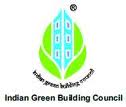Architecture and Building Construction
Traditional water bodies of Delhi
Posted on 18 Dec, 2011 01:56 PMSohail Hashmi, an author, film-maker, one of the founders of the Safdar Hashmi Memorial Trust (SAHMAT) and a true Dilliwala on 5 December 2011 at the India Habitat Center. The presentation woven around photographs of the city's step well
Rainwater Harvesting Users and Trainers' Manual by the KUIDFC
Posted on 10 Nov, 2011 12:03 PMAdequate potable water supply to the community has become an uphill task to the administration both in rural and urban areas. This is because of dwindling groundwater sources, over-extraction, pollution of surface water bodies, negligence of fresh water bodies, poor water management, etc.
Use of ICT for effective urban governance and service delivery in India - A selection of cases - ASCI and CISCO
Posted on 31 Oct, 2011 09:17 AMThis compendium published by Administrative Staff College of India (ASCI) and CISCO presents selective cases on the use of ICT for effective urban governance and service delivery in India. The document includes the following chapters/sections:
Report of the committee on slum statistics/census - Ministry of Housing and Urban Poverty Alleviation
Posted on 29 Oct, 2011 04:12 PMThis report by the Ministry of Housing and Urban Poverty Alleviation, Government of India, is the outcome of the deliberations conducted by the committee on slum statistics/census constituted by the Ministry of Housing and Urban Poverty Alleviation in the context of the realisation that there continues
Decentralised treatment and recycling of domestic wastewater - An integrated approach to water management - A pilot project - CPCB (2008)
Posted on 27 Oct, 2011 10:32 AMThis report by the Central Pollution and Control Board (CPCB) describes the various intervention measures chosen to reduce the ecological footprint of the Sangamam housing project at Auroville. These measures include water harvesting, recycling and waste management.
Indian Green Building Congress 2011, October 20-22, 2011, Pragati Maidan, New Delhi
Posted on 01 Oct, 2011 07:16 AMOrganizers: CII - Sohrabji Godrej Green Business Centre
Venue: Hall No 8 – 11, Pragati Maidan, New Delhi

Description:
The ninth edition of the Green Building Congress 2011, Asia’s largest Green Building Conference & Exhibition, is scheduled to be held from 20th – 22nd October, 2011 at Pragati Maidan, New Delhi, India. This event is organised by the Indian Green Building Congress (IGBC) which is part of the CII- Sohrabji Godrej Green Business Centre (CII – Godrej GBC), a division of Confederation of Indian Industry (CII).
Reap what you sow, eat what you grow A film by Suma Josson on urban community farms promoted by Urban Leaves in Mumbai
Posted on 24 Sep, 2011 06:21 PMReap what you sow, eat what you grow - A film by Suma Josson
It depicts how applying ecological principles and practices to maintain soil fertility, to manage crop health, and to keep soil and water in a good condition is especially relevant to the urban setting. The film focuses on the work being done in the urban farms, yet it can be seen as much more than that and, understood as a vision on healthy products, healthy production systems and as a way of life.
Decentralized wastewater management – An overview of a community initiatives in New Delhi - Vigyan Vijay Foundation
Posted on 05 Sep, 2011 11:40 AMThis paper by Ajit Seshadri, Vigyan Vijay Foundation highlights the poor sanitation situation in India and argues that centralized approaches to wastewater treatment have had limited success and there is a need to make wastwater treatment people centric and effective through the use of decentralized systems such as DEWATS (Decentralized Wastewater Treatment Systems). DEWATS are locally organized and people driven systems that typically comprise a settler, anaerobic baffled tanks, filter beds of gravel and sand, and an open pond. The open pond or the polishing tank recreates a living environment for the wastewater to clean itself, naturally.
Integrated Low Cost Sanitation Scheme - Revised guidelines by the Ministry of Housing and Urban Poverty Alleviation (2008)
Posted on 12 Aug, 2011 04:29 PMThe objective of the scheme is to convert or construct low cost sanitation units through sanitary two pit pour flush latrines with superstructures and appropriate variations to suit local conditions (area specific latrines) and construct new latrines where economically weaker sections household have no latrines and follow the in-human practice of defecating in the open in urban areas. This would improve overall sanitation in the towns.
Short course on Re-Imagining the 'World-Class' city, Indian Institute for Human Settlement, 14th - 18th June, 2011, Bangalore
Posted on 25 May, 2011 03:44 PM Organizer: Indian Institute for Human Settlement (IIHS)
Organizer: Indian Institute for Human Settlement (IIHS)
Venue: Bangalore





